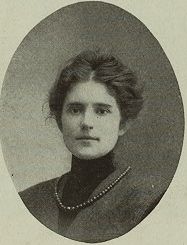A Quote by John Lancaster Spalding
We are made ridiculous less by our defects than by the affectation of qualities which are not ours.
Quote Topics
Related Quotes
If we are made in some degree for others, yet in a greater are we made for ourselves. It were contrary to feeling and indeed ridiculous to suppose that a man had less rights in himself than one of his neighbors, or indeed all of them put together. This would be slavery, and not that liberty which the bill of rights has made inviolable, and for the preservation of which our government has been charged.
Envy is the most universal passion. We only pride ourselves on the qualities we possess, or think we possess; but we envy the pretensions we have, and those which we have not, and do not even wish for. We envy the greatest qualities and every trifling advantage. We envy the most ridiculous appearance or affectation of superiority. We envy folly and conceit; nay, we go so far as to envy whatever confers distinction of notoriety, even vice and infamy.
American gentlemen are a cross between English and French men, and yet really altogether like neither. They are more refined and modest than Frenchmen, and less manly, shy, and rough, than Englishmen. Their brains are finer and flimsier, their bodies less robust and vigorous than ours. We are the finer animals, and they the subtler spirits. Their intellectual tendency is to excitement and insanity, and ours to stagnation and stupidity.
Imagine a world in which generations of human beings come to believe that certain films were made by God or that specific software was coded by him. Imagine a future in which millions of our descendants murder each other over rival interpretations of Star Wars or Windows 98. Could anything -- anything -- be more ridiculous? And yet, this would be no more ridiculous than the world we are living in.

































